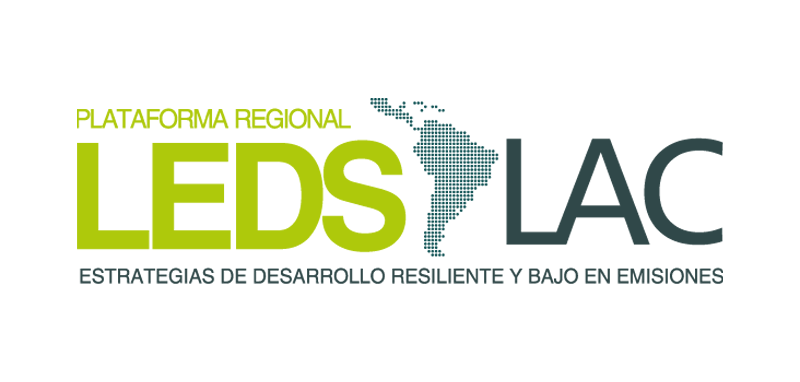[/fusion_title][fusion_separator style_type=»none» top_margin=»» bottom_margin=»» sep_color=»» border_size=»» icon=»» icon_circle=»» icon_circle_color=»» width=»» alignment=»» class=»» id=»»/][/fusion_builder_column][fusion_builder_column type=»1_1″ background_position=»left top» background_color=»» border_size=»» border_color=»» border_style=»solid» spacing=»yes» background_image=»» background_repeat=»no-repeat» padding=»» margin_top=»0px» margin_bottom=»0px» class=»» id=»» animation_type=»» animation_speed=»0.3″ animation_direction=»left» hide_on_mobile=»no» center_content=»no» min_height=»none»][fusion_youtube id=»qlQcWHpID2s» width=»600″ height=»350″ autoplay=»no» api_params=»» class=»»/][fusion_separator style_type=»none» top_margin=»» bottom_margin=»» sep_color=»» border_size=»» icon=»» icon_circle=»» icon_circle_color=»» width=»» alignment=»» class=»» id=»»/][/fusion_builder_column][fusion_builder_column type=»1_1″ background_position=»left top» background_color=»» border_size=»» border_color=»» border_style=»solid» spacing=»yes» background_image=»» background_repeat=»no-repeat» padding=»» margin_top=»0px» margin_bottom=»0px» class=»» id=»» animation_type=»» animation_speed=»0.3″ animation_direction=»left» hide_on_mobile=»no» center_content=»no» min_height=»none»][fusion_checklist icon=»fa-check» iconcolor=»#0f5152″ circle=»» circlecolor=»» size=»13px» class=»» id=»»][fusion_li_item icon=»fa-calendar»]
Day: Wednesday, December 13th, 2017.[/fusion_li_item][fusion_li_item icon=»fa-clock-o»]
Time: 09:00 – 10:30 am (time in Costa Rica)[/fusion_li_item][fusion_li_item icon=»fa-check»]
Check the time of the webinar according to your location: http://bit.ly/2ni5g7c[/fusion_li_item][/fusion_checklist][fusion_separator style_type=»none» top_margin=»» bottom_margin=»» sep_color=»» border_size=»» icon=»» icon_circle=»» icon_circle_color=»» width=»» alignment=»» class=»» id=»»/][fusion_text]
Agenda
Introduction. Rodrigo Rodríguez Tornquist. Executive Director, Asociación Sustentar, Argentina. Chair of LEDS LAC Steering Committee.
Main results of COP23. Felipe Osses. Climate negotiations Coordinator, Ministry of the Environment of Chile(MMA). | Download presentation
Opportunities and challenges for the Latin America and the Caribbean region. Lina Pohl Minister of Environment and Natural Resources of El Salvador.
Implications for local climate action and national-subnational articulation. Cristóbal Reveco. Founder and International Director, Adapt Chile. | Download presentation
About the webinar
According to a press release issued by the Secretariat of the United Nations Framework Convention on Climate Change (UNFCCC), at the end of the 23rd Conference of the Parties (COP23), a powerful message that emerges from the numerous promises and initiatives is «the growing need to coordinate policy, planning and investment efforts to ensure that every cent invested, and every minute of work contributed, has a much greater impact and increases ambition in terms of national climate plans.»
In this webinar we will have a high-level dialogue about the main results of COP23 and the challenges and opportunities for Latin America and the Caribbean, both at the level of formulation and implementation of national policies and strategies, local climate action and collaboration between countries.
The webinar will be held in Spanish. If you have any questions about this event, please contact the LEDS LAC Platform Secretariat: [email protected].
About the panelists
[/fusion_text][/fusion_builder_column][fusion_builder_column type=»1_1″ background_position=»left top» background_color=»» border_size=»» border_color=»» border_style=»solid» spacing=»yes» background_image=»» background_repeat=»no-repeat» padding=»» margin_top=»0px» margin_bottom=»0px» class=»» id=»» animation_type=»» animation_speed=»0.3″ animation_direction=»left» hide_on_mobile=»no» center_content=»no» min_height=»none»][fusion_content_boxes settings_lvl=»parent» layout=»icon-on-side» columns=»1″ icon_align=»left» title_size=»» title_color=»» body_color=»» backgroundcolor=»» icon_circle=»» icon_circle_radius=»» iconcolor=»» circlecolor=»» circlebordercolor=»» circlebordersize=»» outercirclebordercolor=»» outercirclebordersize=»» icon_size=»» icon_hover_type=»» hover_accent_color=»» link_type=»» link_area=»» link_target=»» animation_delay=»» animation_offset=»» animation_type=»0″ animation_direction=»left» animation_speed=»0.1″ margin_top=»» margin_bottom=»» class=»» id=»»][fusion_content_box title=»Felipe Osses» icon=»» backgroundcolor=»» iconcolor=»» circlecolor=»» circlebordercolor=»» circlebordersize=»» outercirclebordercolor=»» outercirclebordersize=»» iconrotate=»» iconspin=»no» image=»https://ledslac.org/wp-content/uploads/2017/11/Felipe-Osses-1-854×1024.jpg» image_width=»130″ image_height=»130″ link=»» linktext=»» link_target=»_self» animation_type=»» animation_direction=»» animation_speed=»»]Economist, with 10 years of experience in evaluating public investment projects and 6 years of experience in international cooperation projects on climate change. He is currently coordinator of international climate negotiations within the Ministry of the Environment of Chile. He also participates in the coordinating team for the implementation of the NDC in Chile and in the team for preparing national reports for the United Nations Framework Convention on Climate Change.[/fusion_content_box][fusion_content_box title=»Lina Pohl» icon=»» backgroundcolor=»» iconcolor=»» circlecolor=»» circlebordercolor=»» circlebordersize=»» outercirclebordercolor=»» outercirclebordersize=»» iconrotate=»» iconspin=»no» image=»https://ledslac.org/wp-content/uploads/2017/11/ministra-683×1024.jpg» image_width=»130″ image_height=»130″ link=»» linktext=»» link_target=»_self» animation_type=»» animation_direction=»» animation_speed=»»]Minister of Environment and Natural Resources of El Salvador (MARN) since 2014. Her administration has focused on preparing the country to face the effects of climate change and reduce environmental degradation through the restoration of ecosystems and landscapes. She holds a degree in Sociology from the José Simeón Cañas Central American University (UCA), a Master’s Degree in Social Sciences, specialization in Social Movements from the Latin American Faculty of Social Sciences, FLACSO, Mexico Headquarters, Mexico City, and a Master’s Degree in Social Economy Models and Alternative Development of the Autonomous University of Madrid. She is a candidate for a PhD in Sociology at the National Autonomous University of Mexico, UNAM.[/fusion_content_box][fusion_content_box title=»Cristóbal Reveco» icon=»» backgroundcolor=»» iconcolor=»» circlecolor=»» circlebordercolor=»» circlebordersize=»» outercirclebordercolor=»» outercirclebordersize=»» iconrotate=»» iconspin=»no» image=»https://ledslac.org/wp-content/uploads/2017/11/Cristobal-Reveco.jpg» image_width=»130″ image_height=»130″ link=»» linktext=»» link_target=»_self» animation_type=»» animation_direction=»» animation_speed=»»]He has been a researcher in adaptation to climate change and carried out climate vulnerability studies in Chile and in Africa. He has experience in the public and private sector on sustainability issues and worked at the United Nations. He is in charge of developing the research network of the Earth System Governance Project for South America.[/fusion_content_box][/fusion_content_boxes][/fusion_builder_column][/fusion_builder_row][/fusion_builder_container]
